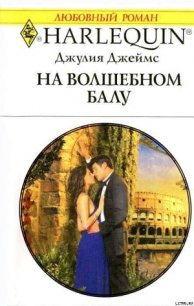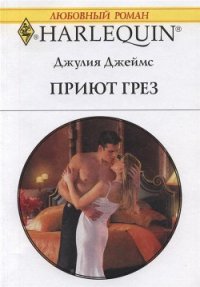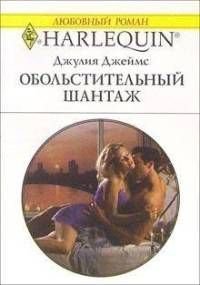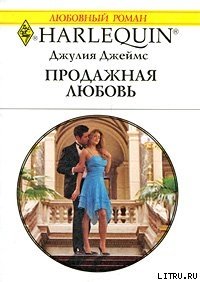Julia Ward Howe - Richards Laura E. (бесплатная регистрация книга TXT) 📗
The winter of 1849-50 was also spent at No. 74 Mount Vernon Street. Here, in February, 1850, a third daughter was born, and named Laura for Laura Bridgman. In the spring, our parents made a second voyage to Europe, taking with them the two youngest children, Julia Romana and Florence being left in the household of Dr. Edward Jarvis.
They spent some weeks in England, renewing the friendships made seven years before; thence they journeyed to Paris, and from there to Boppart, where the Doctor took the water cure. Julia seems to have been too busy for letter-writing during this year; the Doctor writes to Charles Sumner of the beauty of Boppart, and adds: "Julia and I have been enjoying walks upon the banks of the Rhine, and rambles upon the hillside, and musings among the ruins, and jaunts upon the waters as we have enjoyed nothing since we left home."
He had but six months' leave of absence; it was felt by both that Julia needed a longer time of rest and refreshment; accordingly when he returned she, with the two little children, joined her sisters, both now married, and the three proceeded to Rome, where they spent the winter.
Mrs. Crawford was living at Villa Negroni, where Mrs. Mailliard became her companion; Julia found a comfortable apartment in Via Capo le Case, with the Edward Freemans on the floor above, and Mrs. David Dudley Field on that below.
These were pleasant neighbors. Mrs. Freeman was Julia's companion in many delightful walks and excursions; when Mrs. Field had a party, she borrowed Mrs. Howe's large lamp, and was ready to lend her tea-cups in return. There was a Christmas tree—the first ever seen in Rome!—at Villa Negroni; "an occasional ball, a box at the opera, a drive on the Campagna."
Julia found a learned Rabbi from the Ghetto, and resumed the study of Hebrew, which she had begun the year before in South Boston. This accomplished man was obliged to wear the distinctive dress then imposed upon the Jews of Rome, and to be within the walls of the Ghetto by six in the evening. There were private theatricals, too, she appearing as "Tilburina" in "The Critic."
Among the friends of this Roman winter none was so beloved as Horace Binney Wallace. He was a Philadelphian, a rosso. He held that "the highest effort of nature is to produce a rosso"; he was always in search of the favored tint either in pictures or in living beings. Together the two rossi explored the ancient city, with mutual pleasure and profit.
Some years later, on hearing of his death, she recalled these days of companionship in a poem called "Via Felice,"[33] which she sang to an air of her own composition. The poem appeared in "Words for the Hour," and is one of the tenderest of her personal tributes:—
For Death's eternal city
Has yet some happy street;
'Tis in the Via Felice
My friend and I shall meet.
In the summer of 1851 she turned her face westward. The call of husband, children, home, was imperative; yet so deep was the spell which Rome had laid upon her that the parting was fraught with "pain, amounting almost to anguish." She was oppressed by the thought that she might never again see all that had grown so dear. Looking back upon this time, she says, "I have indeed seen Rome and its wonders more than once since that time, but never as I saw them then."
The homeward voyage was made in a sailing-vessel, in company with Mr. and Mrs. Mailliard. They were a month at sea. In the long quiet mornings Julia read Swedenborg's "Divine Love and Wisdom"; in the afternoons Eugene Sue's "Mysteres de Paris," borrowed from a steerage passenger. There was whist in the evening; when her companions had gone to rest she would sit alone, thinking over the six months, weaving into song their pleasures and their pains. The actual record of this second Roman winter is found in "Passion Flowers."
CHAPTER VII
"PASSION FLOWERS"
1852-1858; aet. 33-39
ROUGE GAGNE
The wheel is turned, the cards are laid;
The circle's drawn, the bets are made:
I stake my gold upon the red.
The rubies of the bosom mine,
The river of life, so swift divine,
In red all radiantly shine.
Upon the cards, like gouts of blood,
Lie dinted hearts, and diamonds good,
The red for faith and hardihood.
In red the sacred blushes start
On errand from a virgin heart,
To win its glorious counterpart.
The rose that makes the summer fair,
The velvet robe that sovereigns wear,
The red revealment could not spare.
And men who conquer deadly odds
By fields of ice, and raging floods,
Take the red passion from the gods.
Now, Love is red, and Wisdom pale,
But human hearts are faint and frail
Till Love meets Love, and bids it hail.
I see the chasm, yawning dread;
I see the flaming arch o'erhead:
I stake my life upon the red.
J. W. H.
We have seen that from her earliest childhood Julia Ward's need of expressing herself in verse was imperative. Every emotion, deep or trivial, must take metrical shape; she laughed, wept, prayed—even stormed, in verse.
Walking with her one day, her sister Annie, always half angel, half sprite, pointed to an object in the road. "Dudie dear," she said; "squashed frog! little verse, dear?"
We may laugh with the two sisters, but under the laughter lies a deep sense of the poet's nature.
As in her dreamy girlhood she prayed—
"Oh! give me back my golden lyre!"—
so in later life she was to pray—
"On the Matron's time-worn mantle
Let the Poet's wreath be laid."
The tide of song had been checked for a time; after the second visit to Rome, it flowed more freely than ever. By the winter of 1853-54, a volume was ready (the poems chosen and arranged with the help of James T. Fields), and was published by Ticknor and Fields under the title of "Passion Flowers."
No name appeared on the title-page; she had thought to keep her incognito, but she was recognized at once as the author, and the book became the literary sensation of the hour. It passed rapidly through three editions; was, she says, "much praised, much blamed, and much called in question."




